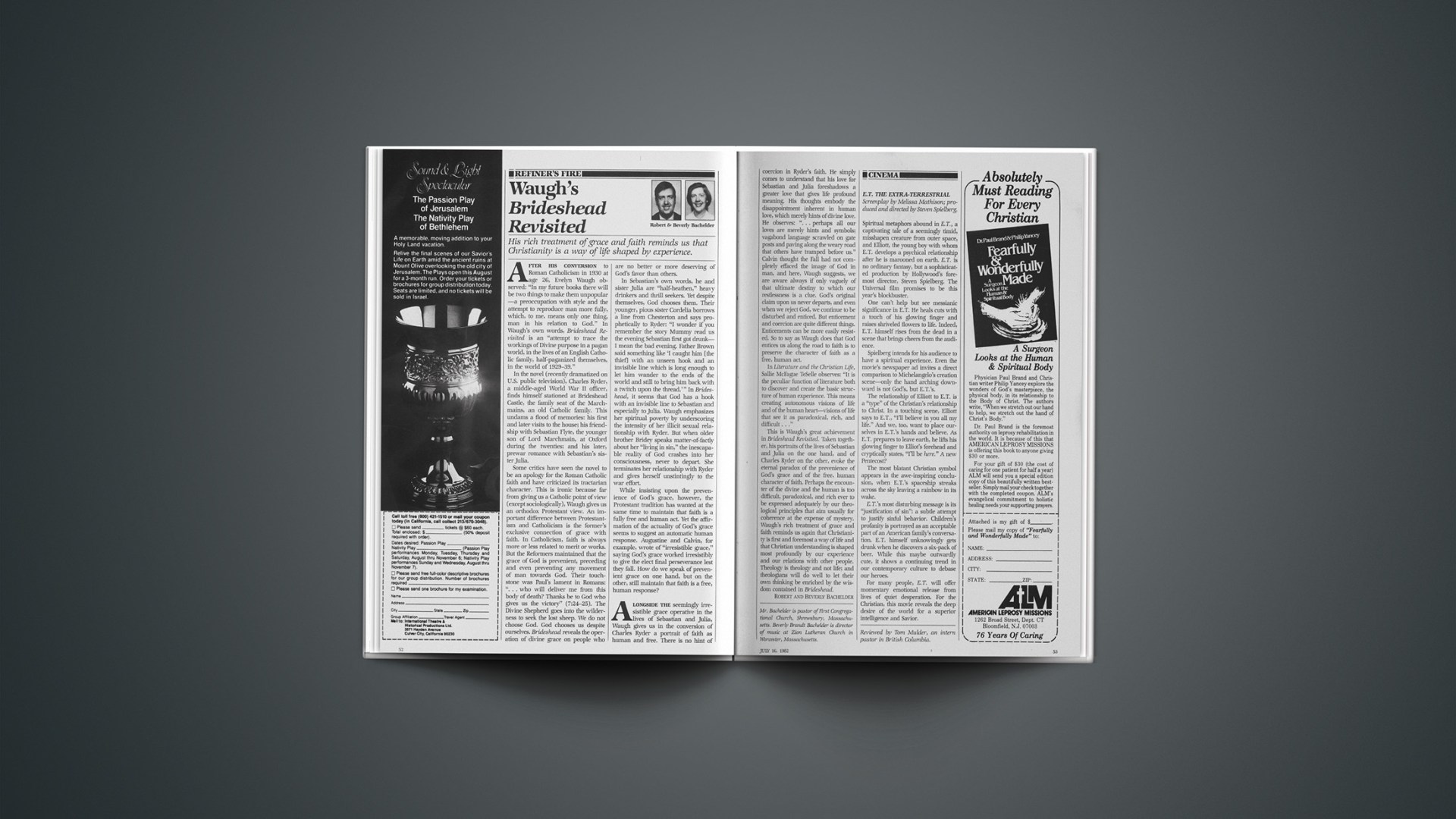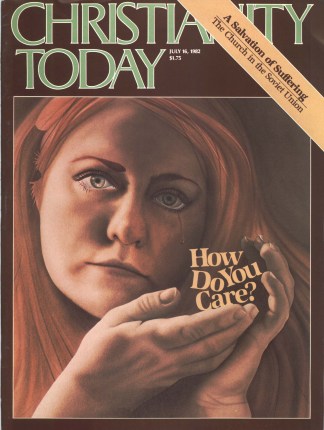His rich treatment of grace and faith reminds us that Christianity is a way of life shaped by experience.
After his conversion to Roman Catholicism in 1930 at age 26, Evelyn Waugh observed: “In my future books there will be two things to make them unpopular—a preoccupation with style and the attempt to reproduce man more fully, which, to me, means only one thing, man in his relation to God.” In Waugh’s own words, Brideshead Revisited is an “attempt to trace the workings of Divine purpose in a pagan world, in the lives of an English Catholic family, half-paganized themselves, in the world of 1929–39.”
In the novel (recently dramatized on U.S. public television), Charles Ryder, a middle-aged World War II officer, finds himself stationed at Brideshead Castle, the family seat of the Marchmains, an old Catholic family. This undams a flood of memories: his first and later visits to the house; his friendship with Sebastian Flyte, the younger son of Lord Marchmain, at Oxford during the twenties; and his later, prewar romance with Sebastian’s sister Julia.
Some critics have seen the novel to be an apology for the Roman Catholic faith and have criticized its tractarian character. This is ironic because far from giving us a Catholic point of view (except sociologically), Waugh gives us an orthodox Protestant view. An important difference between Protestantism and Catholicism is the former’s exclusive connection of grace with faith. In Catholicism, faith is always more or less related to merit or works. But the Reformers maintained that the grace of God is prevenient, preceding and even preventing any movement of man towards God. Their touchstone was Paul’s lament in Romans: “… who will deliver me from this body of death? Thanks be to God who gives us the victory” (7:24–25). The Divine Shepherd goes into the wilderness to seek the lost sheep. We do not choose God. God chooses us despite ourselves. Brideshead reveals the operation of divine grace on people who are no better or more deserving of God’s favor than others.
In Sebastian’s own words, he and sister Julia are “half-heathen,” heavy drinkers and thrill seekers. Yet despite themselves, God chooses them. Their younger, pious sister Cordelia borrows a line from Chesterton and says prophetically to Ryder: “I wonder if you remember the story Mummy read us the evening Sebastian first got drunk—I mean the bad evening. Father Brown said something like ‘I caught him [the thief] with an unseen hook and an invisible line which is long enough to let him wander to the ends of the world and still to bring him back with a twitch upon the thread.’ ” In Brideshead, it seems that God has a hook with an invisible line to Sebastian and especially to Julia. Waugh emphasizes her spiritual poverty by underscoring the intensity of her illicit sexual relationship with Ryder. But when older brother Bridey speaks matter-of-factly about her “living in sin,” the inescapable reality of God crashes into her consciousness, never to depart. She terminates her relationship with Ryder and gives herself unstintingly to the war effort.
While insisting upon the prevenience of God’s grace, however, the Protestant tradition has wanted at the same time to maintain that faith is a fully free and human act. Yet the affirmation of the actuality of God’s grace seems to suggest an automatic human response. Augustine and Calvin, for example, wrote of “irresistible grace,” saying God’s grace worked irresistibly to give the elect final perseverance lest they fall. How do we speak of prevenient grace on one hand, but on the other, still maintain that faith is a free, human response?
Alongside the seemingly irresistible grace operative in the lives of Sebastian and Julia, Waugh gives us in the conversion of Charles Ryder a portrait of faith as human and free. There is no hint of coercion in Ryder’s faith. He simply comes to understand that his love for Sebastian and Julia foreshadows a greater love that gives life profound meaning. His thoughts embody the disappointment inherent in human love, which merely hints of divine love. He observes: “… perhaps all our loves are merely hints and symbols; vagabond language scrawled on gate posts and paving along the weary road that others have tramped before us.” Calvin thought the Fall had not completely effaced the image of God in man, and here, Waugh suggests, we are aware always if only vaguely of that ultimate destiny to which our restlessness is a clue. God’s original claim upon us never departs, and even when we reject God, we continue to be disturbed and enticed. But enticement and coercion are quite different things. Enticements can be more easily resisted. So to say as Waugh does that God entices us along the road to faith is to preserve the character of faith as a free, human act.
In Literature and the Christian Life, Sallie McFague TeSelle observes: “It is the peculiar function of literature both to discover and create the basic structure of human experience. This means creating autonomous visions of life and of the human heart—visions of life that see it as paradoxical, rich, and difficult …”
This is Waugh’s great achievement in Brideshead Revisited. Taken together, his portraits of the lives of Sebastian and Julia on the one hand, and of Charles Ryder on the other, evoke the eternal paradox of the prevenience of God’s grace and of the free, human character of faith. Perhaps the encounter of the divine and the human is too difficult, paradoxical, and rich ever to be expressed adequately by our theological principles that aim usually for coherence at the expense of mystery. Waugh’s rich treatment of grace and faith reminds us again that Christianity is first and foremost a way of life and that Christian understanding is shaped most profoundly by our experience and our relations with other people. Theology is theology and not life; and theologians will do well to let their own thinking be enriched by the wisdom contained in Brideshead.
ROBERT AND BEVERLY BACHELDER
Mr. Bachelder is pastor of First Congregational Church, Shrewsbury, Massachusetts. Beverly Brandt Bachelder is director of music at Zion Lutheran Church in Worcester, Massachusetts.










